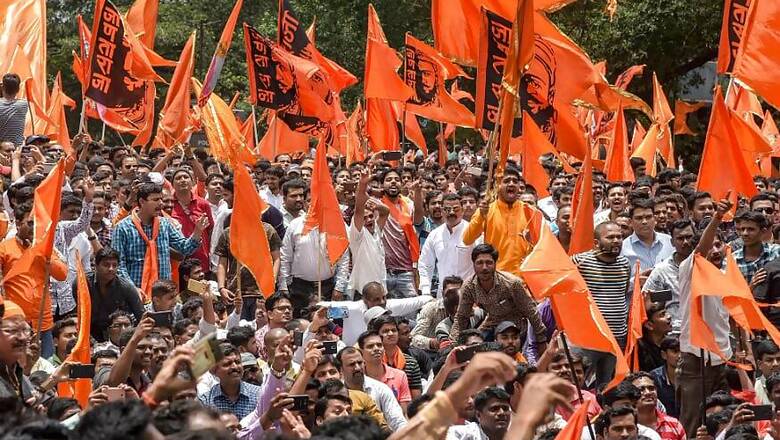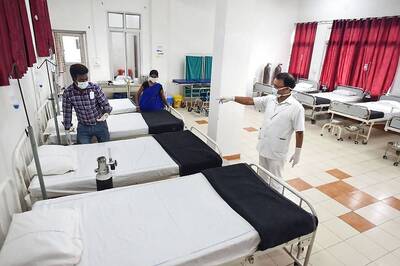
views
Mumbai: After the Bombay High Court asked the government to hand over the complete Maharashtra Backward Class Commission (MBCC) report on Maratha reservation to all petitioners, CNN-News18 has accessed the 1,035-page report which states the issues faced by the community.
The nine-member Maharashtra State Backward Class Commission (MSBCC), headed by Justice MG Gaikwad, has laid down that it had taken note of several factors before recommending 16% reservation for the Maratha community.
It was on the basis of this report that on November 30 last year the state government had passed a bill giving 16% quota in government jobs and education to the Marathas, who were declared as a “socially and educationally backward class”.
On the basis of sample survey data, information and statistics, it is found that Marathas are socially, educationally and economically backward. The community suffered years of backwardness when compared to other castes.
The report also notes that the representation of Marathas in state public employment in higher grades is found to be inadequate. This percentage in IAS cadre is very low as compared to OBC category. Even the presence of Marathas in academic career and senior positions is very marginal. Only 4.3% Marathas are a part of the academic and teaching posts.
The report states that the community had yet not viewed education as social emancipation. This lack of education has also led to their withdrawal from the labour employment market.
Justifying the reservation need, the commission has noted that almost 70% of the Marathas live in kuchcha dwellings.
The Bombay High Court on Monday directed the state government to hand over the full Maharashtra Backward Class Commission (MBCC) report on Maratha reservation to all petitioners by Tuesday.
A division bench of Ranjit More and Bharati Dangre was hearing a bunch of petitions, opposing and in support of the reservation.
In the last hearing, the state’s counsel VA Thorat and advocate general Ashutosh Kumbhakoni were apprehensive of making the entire report public.
“We are ready to submit the entire report, running into 4,000 pages to the court. However, there are some 20 pages pertaining to the Maratha community’s history which we do not wish to put out in the public domain. We fear it would create communal tension and law and order problems,” Kumbhakoni said.
The court ordered the entire copy to be supplied to petitioners, respondents and intervenors without annexures and masking.
In the report, the members have also noted that during the farmer suicides, the incidents of such suicides were high among the Marathas. As many as 277 out of 40,962 families surveyed lost members to suicides.
Out of 13,368 farmer suicides between 2013 and 2018, 2,152 (23.56 percentage) were from the Maratha community. Suicides have also been due to indebtedness and agriculture distress. From the statistics it can be inferred that distress and frustration of the Maratha community is such that they are forced to commit suicide.
The testimonies of women during the report preparation shows the existence of the practice of dowry, emanating from lack of education. It states that married women are subject to cruelty and almost 56% Maratha women are illiterate.
The report also highlights that the Marathas are agriculturally marginal or small holders, and hence have no alternative but to work as labourers. Their representation in the government employment is meagre.
The report also notes as to how Maratha and Kunbi communities are the same and interchangeable. The commission is of the considered opinion that Maratha and Kunbi are not separate castes (Kunbi is included as OBC caste).
In November 2017, the state government had appointed retired Justice MG Gaikwad as the chairman of the commission. On February 9, 2018, the commission had decided to conduct a survey by appointing five agencies and organise public hearings. On November 15, 2018, the MBCC submitted a report to the state and on November 18, the state had accepted its recommendations and findings.

















Comments
0 comment